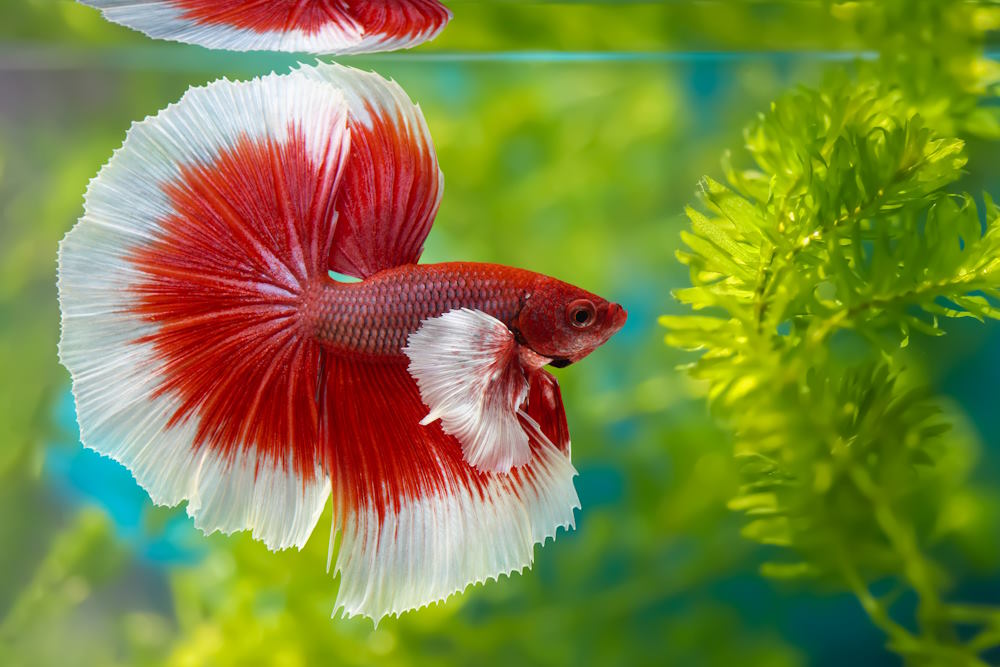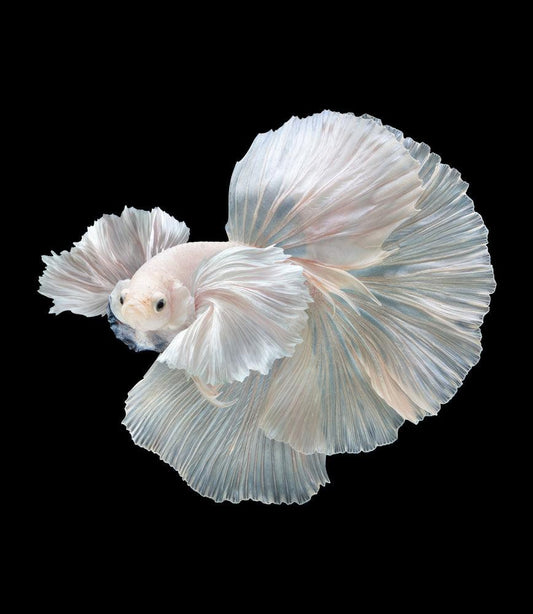Comprehending Betta Fish Habits: What Every Owner Ought To Know
The Ultimate Overview to Betta Fish Care: Crucial Tips for Maintaining a Healthy and Flourishing Aquarium Atmosphere
Effective Betta fish treatment requires a comprehensive understanding of their one-of-a-kind ecological and physiological demands. Developing a suitable fish tank begins with picking the right container size and ensuring optimum water conditions, which are essential for the wellness and wellness of your Betta.
Choosing the Right Storage Tank
Picking the suitable tank for your Betta fish is crucial to guaranteeing its health and wellness and well-being. Bettas prosper in atmospheres that resemble their all-natural environments, which typically include tranquility, warm waters. A container dimension of at least five gallons is recommended to supply adequate swimming area, as smaller sized tanks can cause stress and anxiety and wellness issues for these vivid fish.
When choosing a tank, take into consideration the container's form and purification system. In addition, a trusted purification system is crucial to keep water high quality and reduce the frequency of water changes.
Temperature law is an additional crucial variable; Bettas like water temperature levels between 76 ° F and 82 ° F. Purchasing a great heating unit will make sure that the water continues to be within this array, advertising a healthy and balanced and active way of life for your Betta. Finally, supplying proper tank decorations and hiding places will help reduce stress and anxiety and motivate all-natural habits, additionally enhancing your Betta's well-being.
Keeping Water Quality
Keeping optimal water high quality is necessary for the health and durability of Betta fish. This calls for regular tracking of numerous parameters, including temperature level, pH, ammonia, nitrite, and nitrate levels. Bettas prosper in temperature levels between 76 ° F and 82 ° F, so preserving a secure temperature level is important. Abrupt fluctuations can result in stress and anxiety and disease.
Routine screening making use of a trusted water screening set can assist ensure these criteria remain within the appropriate ranges. Ammonia and nitrite degrees must always be at 0 ppm, as even reduced focus can be hazardous to Betta fish.
Regular water adjustments are important to maintaining water top quality. Additionally, including a durable filtration system can aid in preserving water quality and high quality, providing a healthier environment for your Betta fish.
Ideal Feeding Practices
Providing a well balanced diet is crucial for the health and lively pigmentation of Betta fish, as their nutritional needs play a significant duty in their total well-being. Betta fish are carnivorous by nature, needing a diet high in protein. A combination of top notch pellets, icy or live foods such as bloodworms, brine shrimp, and daphnia can give the essential nutrients they need.
Feed your Betta fish 2 to three times a day, supplying just what they can eat within 2 to 3 mins to stop overfeeding and preserve water quality. Overfeeding can bring about weight problems and wellness concerns, consisting of swim bladder illness. It is necessary to monitor their nutritional consumption and adjust portion sizes as necessary.
In addition to protein, a well balanced diet regimen ought to consist of vitamins and minerals to you can find out more advertise optimum health. Take into consideration supplementing their diet with high-grade flakes or pellets especially formulated for Betta fish, as these commonly have necessary additives.

Creating an Ideal Habitat

Water high quality is paramount; preserve a temperature in between 76 ° F and 82 ° F, and make sure the pH degree ranges from 6 - betta fish.5 to 7.5. Normal water adjustments of 25-50% per week will certainly aid maintain toxic substances at bay and make sure a secure setting
Including plants and hiding spots is important, as Betta fish are normally territorial and delight in having locations to discover and pull away. Live or silk plants, along with caverns and accessories, can create a stimulating environment.

Normal Health Checkups
Performing regular health check-ups is crucial for making certain the well-being of Betta fish, as early detection of potential concerns can stop serious health problems. These check-ups need to incorporate a complete evaluation of the fish's physical condition, habits, and environmental factors.
Begin by observing the Betta fish for any type of indicators of distress, such as sleepiness, loss of appetite, or unusual swimming patterns. Additionally, check the fins and body for indicators of staining, sores, or fin rot, which can indicate infections or parasites. Frequently checking the water quality in the aquarium is just as critical; specifications such as pH, ammonia, nitrite, and nitrate degrees ought to be preserved within optimal arrays to protect against tension and disease.
Furthermore, take into consideration keeping a log of health monitorings see and water top quality examinations. Timely treatment can make a significant difference in the healing of your Betta fish, guaranteeing a long and healthy life in a well-maintained aquarium environment.
Conclusion
In verdict, effective Betta fish treatment rests on producing and keeping an optimum aquarium setting. Key variables include selecting an appropriately sized container, ensuring consistent water top quality, adhering to perfect feeding methods, and developing an environment that reduces tension. Routine health examinations are vital for early discovery of potential concerns. By adhering to these guidelines, aquarists can promote the wellness and vibrancy of Betta fish, ultimately resulting in a growing aquatic environment.